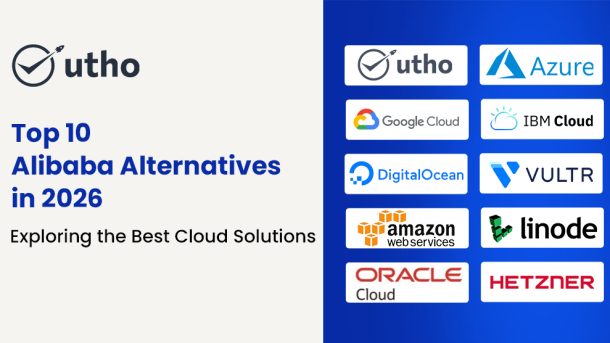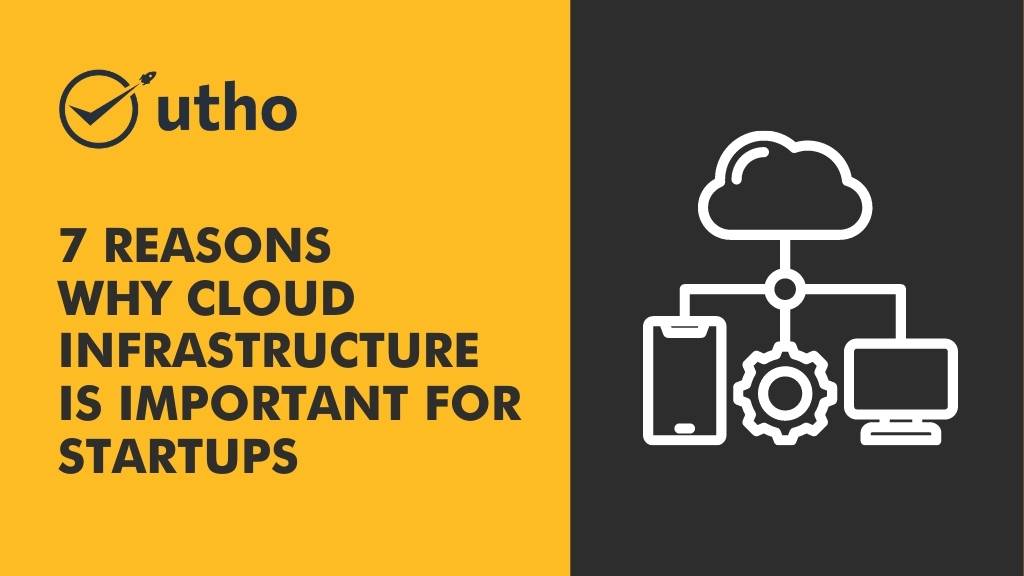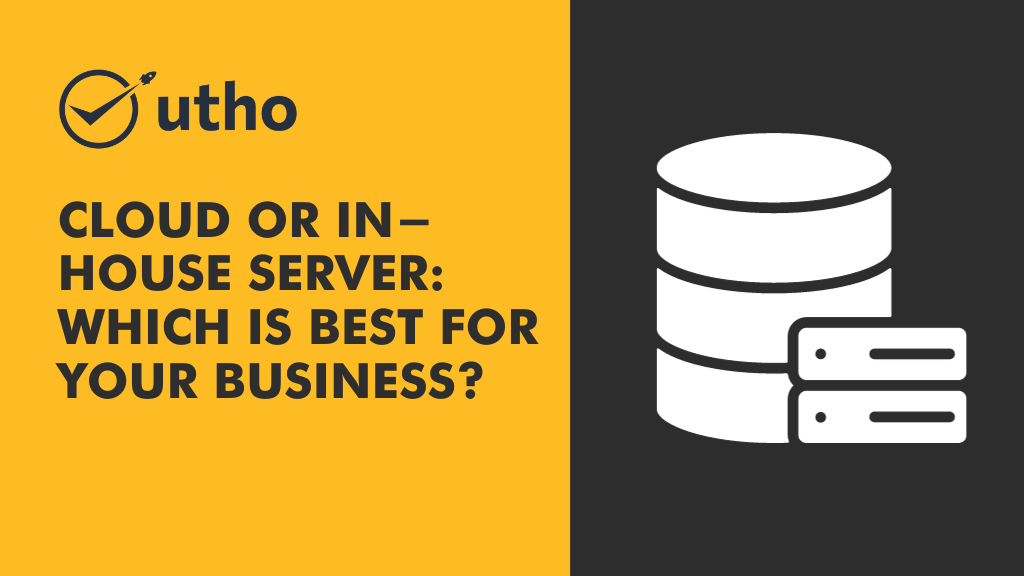Alibaba Cloud is strong in the cloud industry, especially in Asia-Pacific. Its success comes from its scalability, AI tools, and strong infrastructure. It is a preferred choice for businesses. They want to use its advanced features, like big data, the cloud, and machine learning. As cloud computing grows, businesses seek better options to meet their needs.
This guide reviews the top 10 Alibaba Cloud alternatives in 2026. It highlights their features, benefits, and how they compare to Alibaba Cloud. This guide will help you navigate the crowded cloud marketplace. It's for startups wanting low costs. It's for enterprises needing advanced AI tools. And it's for organisations seeking better global coverage.
Why look for alternatives to Alibaba?
Alibaba Cloud has great tools and services. But it may not suit every organisation. Businesses often explore alternatives for several compelling reasons:
1. Regional Limitations
Alibaba Cloud is a leader in Asia. It has a strong infrastructure and services tailored to the region. However, its global footprint outside Asia is smaller than AWS or GCP. For businesses targeting North America and Europe, this can cause issues. It may increase latency, create compliance problems, or reduce service options.
2. Cost Concerns
Alibaba Cloud's prices are competitive in Asia. But other providers often have better pricing models or cost-saving features. For instance:
- Free Tiers: Providers like AWS or DigitalOcean often have free usage tiers. This helps startups and small businesses get started.
- Transparent Pricing: Some platforms, like Hetzner Cloud, have simple, low-cost prices. Businesses that prioritise cost efficiency might find Alibaba's prices less appealing, especially outside Asia.
3. Specialised Requirements
Every business has unique requirements, and not all cloud providers cater equally to niche needs. For instance:
- Hybrid Cloud Solutions: Microsoft Azure excels in hybrid setups. It offers a smooth integration of on-premises and cloud systems.
- AI and Machine Learning: Google Cloud Platform (GCP) leads in advanced AI and data analytics tools. Organisations with specific requirements may find better alternatives than Alibaba Cloud.
4. Support and Compliance
For businesses outside Asia, Alibaba's support may not meet their standards. IBM Cloud offers regulated solutions for industries like healthcare and finance. AWS has extensive global compliance certifications. Also, support responsiveness and language options can vary. This pushes businesses to find providers with better support in their regions.
Key factors to consider before choosing an Alibaba alternative.
When seeking alternatives to Alibaba Cloud, focus on factors that match your goals. Here are the key aspects to consider:
1. Scalability
Your cloud provider should be able to grow with your business. Check if the alternative offers:
- Flexible Resource Scaling: Auto-scaling or manual adjustments for compute, storage, and networking.
- Global Scalability: A vast network of data centres to ensure performance as you expand globally.
2. Performance
Cloud performance directly impacts user experience. Key performance indicators include:
- Uptime Guarantees: Look for providers offering SLAs with 99.9% or higher uptime.
- Infrastructure: SSD-backed storage, high-performance CPUs, and optimised networks are critical for smooth operations.
3. Pricing
Cloud costs can quickly spiral if not carefully managed. Evaluate:
- Pricing Models: Compare pay-as-you-go options versus fixed plans.
- Free tiers and credits: Some providers offer free usage tiers or trial credits. They reduce initial costs.
- Hidden Fees: Watch for costs that might inflate your expenses. They could be for bandwidth or extra support.
4. Compliance
For businesses in regulated industries like finance or healthcare, compliance is non-negotiable. Consider:
- Certifications: Providers with certifications like ISO 27001, SOC 2, GDPR, or HIPAA.
- Regional Compliance: Verify if the provider adheres to local laws, such as Europe’s GDPR or the US’s HIPAA.
5. Support
Responsive and knowledgeable support can save time and resources. Ensure the alternative offers:
- 24/7 availability: around-the-clock support through multiple channels like chat, email, or phone.
- Expertise: Look for technical specialists who are familiar with your specific industry needs.
6. Global Reach
The location of data centres plays a crucial role in ensuring low latency and regulatory compliance.
- Regional Data Centres: Ensure the provider has data centres in the regions you operate.
- Latency optimisation: Global businesses need a low-latency network for users in different geographies.
Making an informed decision
Choosing the right cloud provider is a balance. You must weigh your needs against each platform's strengths. This guide lists Alibaba alternatives for various needs. They cater to your priorities, whether they are scalability, cost, or specialised features. Knowing your priorities and each provider's strengths will help you choose a cloud solution with confidence. It will support your business's growth and goals.
Now, let's dive into the top 10 Alibaba alternatives. We'll explore their unique features and advantages. They are strong options in the competitive cloud market.
Top 10 Alibaba Alternatives in 2026
This is a detailed look at the best alternatives to Alibaba Cloud. It focuses on their features, strengths, and how they excel for various business needs.
| Amazon Web Services (AWS) |
| Google Cloud Platform (GCP) |
| Microsoft Azure |
| Utho |
| DigitalOcean |
| IBM Cloud |
| Linode (Akamai Cloud) |
| Vultr |
| Hetzner Cloud |
| Oracle Cloud |
1. Amazon Web Services (AWS)
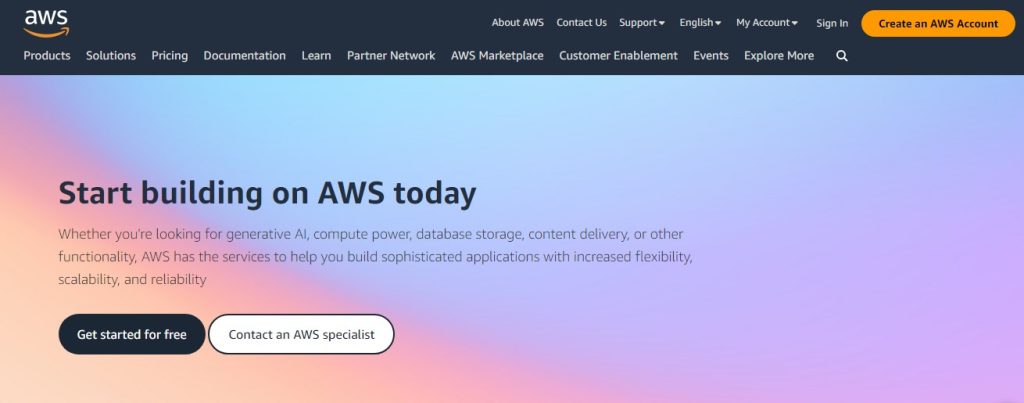
AWS is the global leader in cloud computing. It provides a full suite of services for businesses of all sizes. It is famous for its global reach and advanced tools for machine learning, data analytics, and serverless computing.
- Features:
- AWS has a global infrastructure. It has multiple regions and availability zones. This ensures low latency and high availability for users worldwide.
- AI/ML Tools: AWS offers powerful tools for AI/ML. They are SageMaker for machine learning and Rekognition for image and video analysis.
- Serverless Computing: AWS Lambda lets developers run apps without managing servers.
- Why it's an alternative: AWS has a greater global reach than Alibaba. It offers a vast ecosystem of services that integrate with existing enterprise systems. Its strong docs, integrations, and support make it reliable for global firms.
- Downside: AWS's pricing can be complex. Costs can rise quickly, especially for small users or start-ups.
Also read: Amazon Web Services (AWS) Alternatives
2. Google Cloud Platform (GCP)
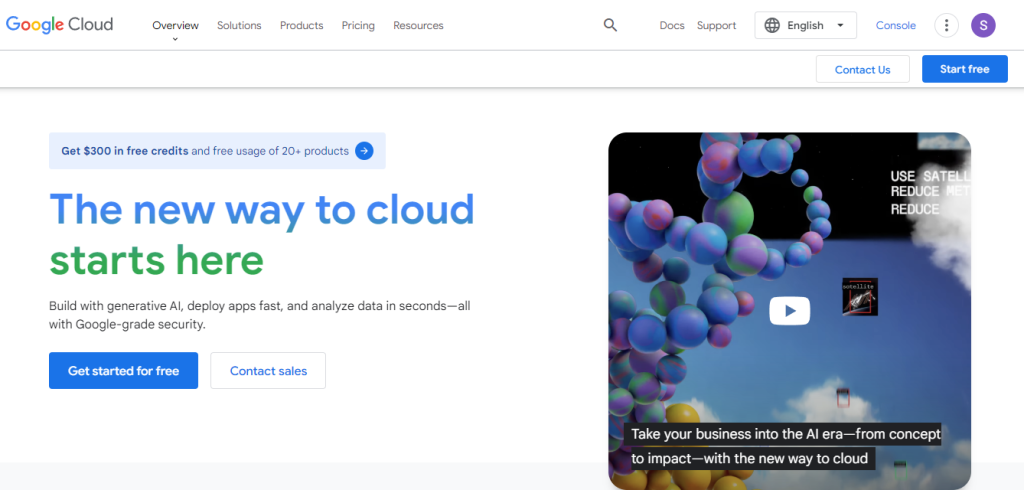
GCP is a top-tier cloud provider. It excels in data analytics, AI, and Kubernetes. It is often the go-to platform for data-heavy or AI-focused organisations.
- Features:
- Kubernetes Engine: GCP's Kubernetes Engine simplifies deploying and managing containerised apps. It is a leader in cloud-native solutions.
- BigQuery: An advanced analytics platform for processing and analysing large datasets.
AI Capabilities: GCP has powerful AI tools, like Vertex AI. It streamlines machine-learning workflows.
- Why it's an alternative: GCP excels in AI and big data. It competes with Alibaba for firms focused on innovation and data-driven decisions. Its advanced tools provide significant advantages for companies looking to scale AI-driven applications.
- Downside: GCP's interface and tools are harder to learn. This can be tough for users new to Google's ecosystem.
Also read: Google Cloud Platform (GCP) Alternatives
3. Microsoft Azure
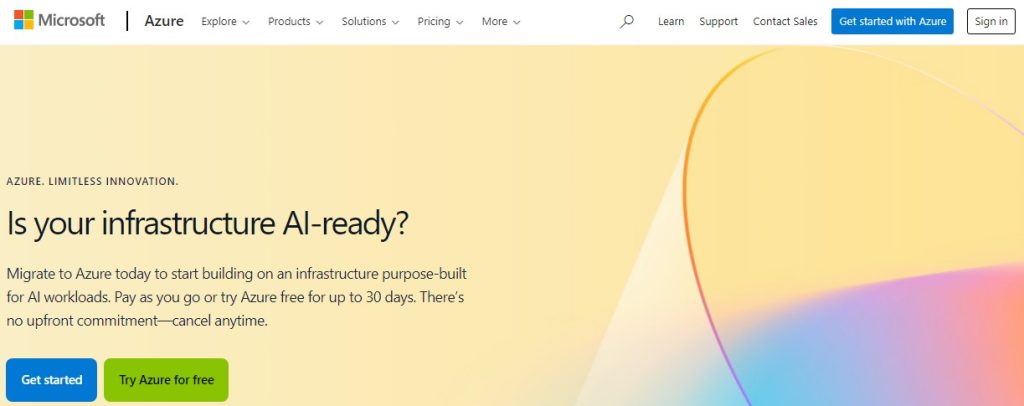
Azure is a top cloud platform. It has a strong hybrid cloud and deep integration with Microsoft's enterprise products. It is particularly appealing to organisations already invested in Microsoft’s ecosystem.
- Features:
- Hybrid Cloud Solutions: Azure integrates on-premises and cloud infrastructure. This allows for flexible deployment strategies.
- Enterprise Integrations: Strong support for tools like Office 365, Dynamics, and Active Directory.
- IoT Capabilities: Azure IoT Hub lets businesses connect and manage billions of IoT devices.
- Why It's an Alternative: Azure's integration with Microsoft systems gives it an edge over Alibaba for enterprises. Its hybrid capabilities are unmatched. They let businesses move to the cloud at their own pace.
- Downside: Azure's complex pricing can deter small, budget-limited businesses.
Also read: Microsoft Azure Alternatives
4. Utho
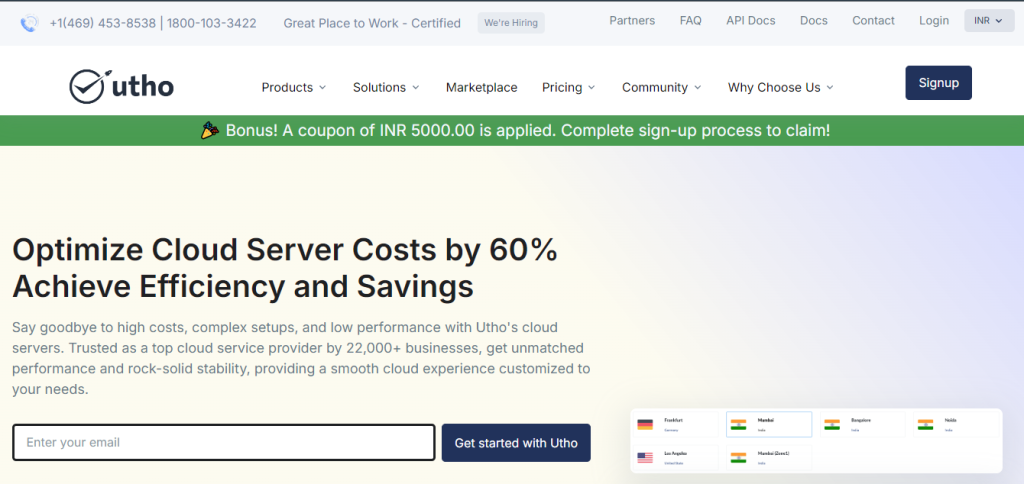
Utho is revolutionising the cloud industry with its customer-focused and developer-friendly approach. A leader in Indian hyperscaling, Utho empowers businesses in emerging markets. It offers unmatched cost savings, performance, and simplicity.
- Features:
- Scalable Cloud Instances: Utho's flexible computing options can grow with businesses.
- Kubernetes Support: A robust Kubernetes environment for deploying and managing containerised applications.
- Cost Savings: Utho helps businesses cut cloud costs by up to 60% vs. major hyperscalers.
- Why it's an alternative: Utho is a cheap, high-performing alternative to Alibaba Cloud. Its focus on cost and simplicity makes it ideal for businesses in emerging markets or those prioritising ROI. The platform is user-friendly. It enables quick resource deployment and management without a steep learning curve.
- Downside: Utho is a rapidly growing platform. Its global data centre network is still expanding. This may limit businesses needing widespread coverage.
5. DigitalOcean
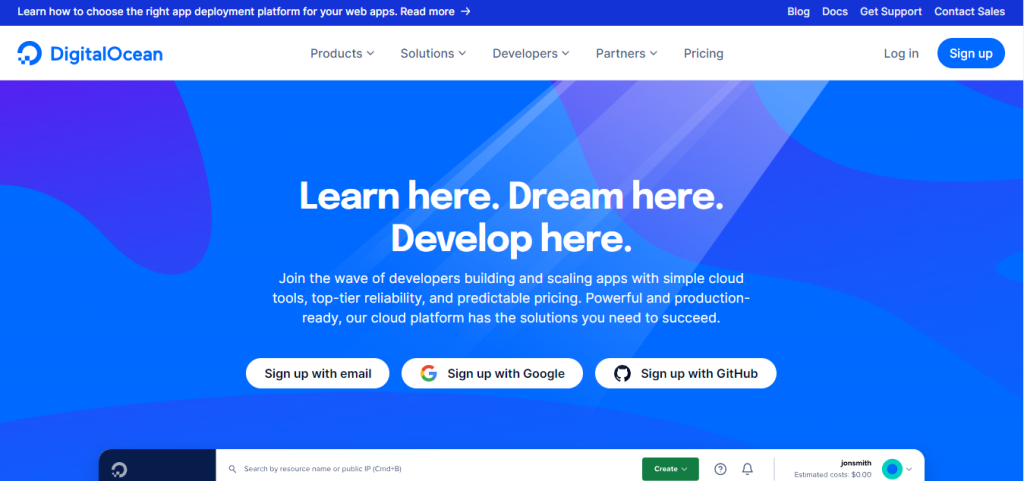
Developers and startups love DigitalOcean for its simple pricing and ease of use. It aims to simplify cloud services. This will help smaller teams with limited tech skills.
Also read: DigitalOcean Alternatives
- Features:
- Droplets (VMs): Scalable virtual machines designed for simplicity and flexibility.
- Managed Databases: Hassle-free database management for developers.
- Predictable Pricing: Transparent and budget-friendly pricing plans.
- Why it's an alternative: DigitalOcean is simple and cheap. So, it's a great option for startups and small businesses, as an alternative to Alibaba Cloud. It eliminates the complexity associated with larger providers while still offering reliable infrastructure.
- Downside: DigitalOcean lacks some advanced, enterprise-grade features and global reach. Providers like AWS and Azure have these.
6. IBM Cloud
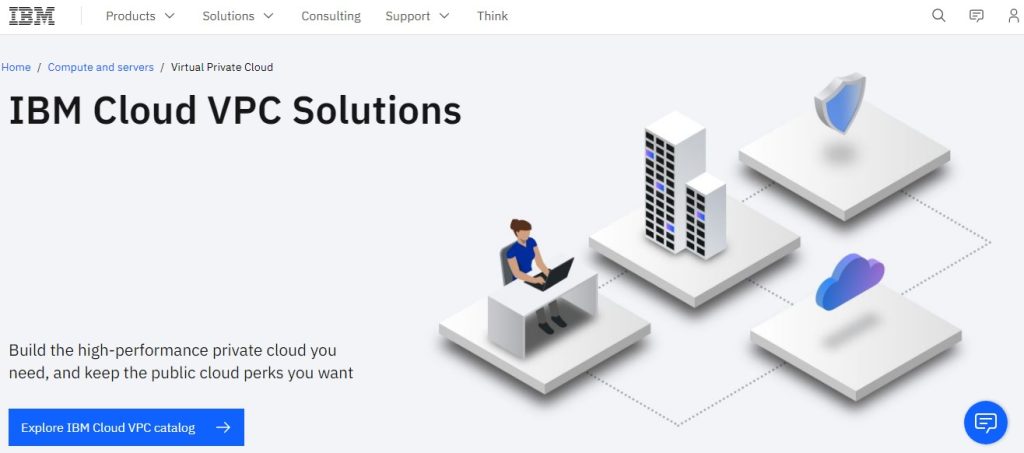
IBM Cloud is a top choice for industries needing strict compliance, AI, and hybrid cloud. Its enterprise-grade tools suit highly regulated sectors like healthcare, finance, and manufacturing.
- Features:
- Watson AI: A powerful set of AI tools. They automate tasks, provide insights, and streamline operations.
- Blockchain Tools: IBM leads in blockchain tech. It enables secure, transparent digital ledgers for industries like supply chain and finance.
- Hybrid Cloud Support: A perfect blend of on-premises and cloud systems. It's ideal for businesses moving to the cloud.
- Why it's an alternative: IBM Cloud beats Alibaba Cloud in compliance-heavy industries. It provides better, tailored solutions. Its AI, especially Watson, is more advanced and versatile. It is a better choice for businesses using AI in decision-making and automation.
- Downside: IBM Cloud's services are often expensive and complex. This can be a barrier for startups or smaller organisations with limited resources.
7. Linode (Akamai Cloud)
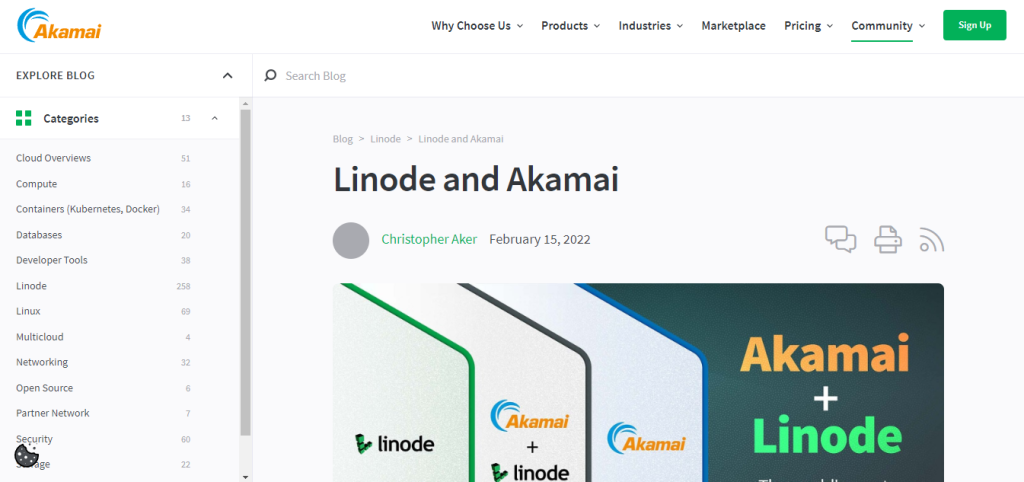
Linode, now part of Akamai Cloud, is a developer-focused platform. It is known for its simplicity and low-cost solutions. Its reliable infrastructure is particularly suited to startups, developers, and SMBs.
Also read: Linode Alternatives
- Features:
- High-performance SSD servers: provide lightning-fast performance for deploying applications.
- Dedicated CPU Instances: Handle resource-intensive workloads with dedicated computing power.
- Transparent pricing: predictable and affordable plans eliminate surprises for users.
- Why it's an alternative: Linode's simple pricing and dev focus make it a strong rival to Alibaba Cloud. Alibaba targets large enterprises. Linode caters to smaller teams and independent developers wanting a simpler solution.
- Downside: Linode lacks the enterprise features and AI tools of Alibaba Cloud. This may limit its appeal to larger organisations.
8. Vultr
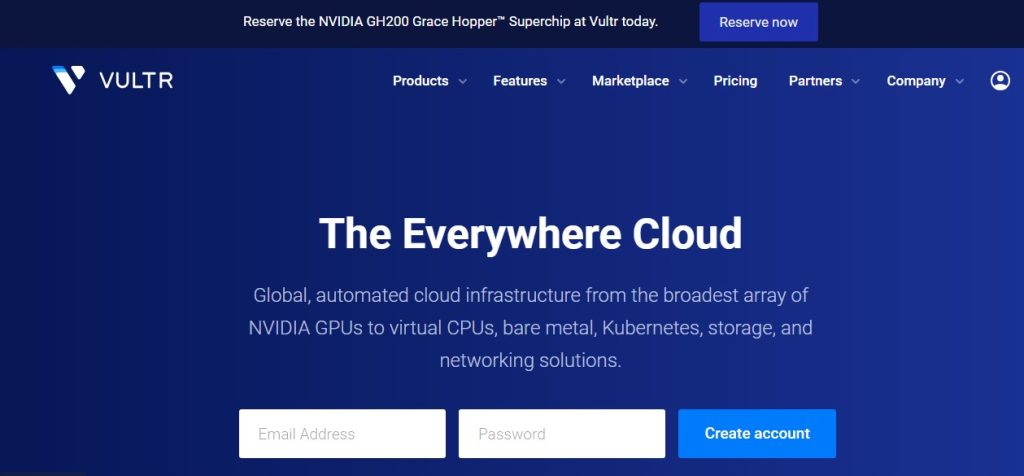
Vultr is a versatile cloud platform. It offers many compute options, from standard VMs to bare metal servers. Its global reach and low cost make it a strong rival to Alibaba Cloud for businesses of all sizes.
Also read: Vultr Alternatives
- Features:
- Bare Metal Servers: Provide dedicated resources for performance-critical applications.
- Managed Kubernetes: Simplifies container orchestration for developers and DevOps teams.
- Global Data Centres: Ensure low latency and high performance across diverse locations.
- Why it's an alternative: Vultr's low prices and flexibility make it a great choice for businesses seeking cheaper options than Alibaba Cloud. Its Bare Metal offerings also provide dedicated performance for specialised workloads.
- Downside: Vultr lacks Alibaba's advanced AI and big data tools. They may be critical for some businesses.
9. Hetzner Cloud
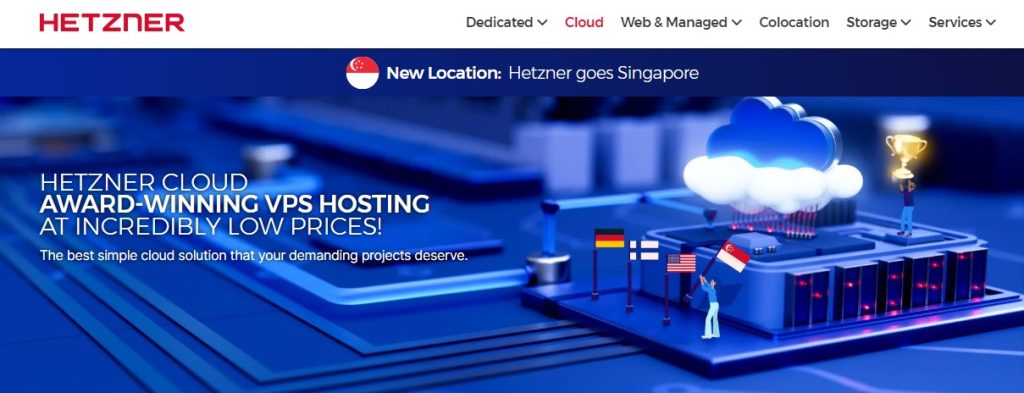
Hetzner Cloud is a European, low-cost provider. It is known for its transparent pricing and reliable performance. It is popular among SMBs in Europe. They seek high-quality, low-cost cloud solutions.
- Features:
- VPS with SSD storage: Delivers fast and consistent performance for virtual servers.
- Load balancers distribute traffic effectively to ensure application reliability.
- Low-cost solutions: budget-friendly plans make them accessible to smaller businesses.
- Why it's an alternative: Hetzner's low prices and reliable tech make it a top choice for European firms. It’s perfect for SMBs wanting quality cloud hosting at a low cost. Larger providers like Alibaba often charge high prices.
- Downside: Hetzner has limited global reach. It is less suitable for businesses with extensive international operations.
10. Oracle Cloud

Oracle Cloud is a high-performance platform for enterprises. It meets their demanding database and compute needs. It provides a comprehensive suite of tools for managing workloads at scale.
- Features:
- Autonomous Databases: Use AI to automate database management, ensuring efficiency and security.
- High-Performance Computing: Optimised for resource-intensive applications such as analytics and machine learning.
- Enterprise-Grade Support: Offers dedicated support for mission-critical workloads.
- Why It's an Alternative: Oracle Cloud rivals Alibaba. It has strong database tools and a growing global presence. It’s an excellent choice for enterprises requiring secure and efficient database solutions.
- Downside: Oracle Cloud's complexity may deter small teams. Its interface is not user friendly.
Conclusion
Alibaba Cloud is a dominant player, especially in Asia. It has advanced AI, a scalable infrastructure, and innovative big data solutions. The global cloud market is very dynamic. It has many Alibaba alternatives for varied business needs, budgets, and tech requirements.
AWS is the global leader. It has unmatched reach and a vast ecosystem. Google Cloud Platform (GCP) excels in AI and data analytics. The alternatives offer powerful solutions. They aim to help businesses innovate and be efficient. For firms invested in Microsoft products, Azure offers hybrid cloud and seamless integration. Meanwhile, Utho offers a fresh view. It has developer tools, 60% cost savings, and a focus on emerging markets.
For simplicity and low cost, use DigitalOcean or Linode. Their easy platforms are perfect for startups and SMBs. IBM Cloud offers enterprise tools and hybrid capabilities. It suits industries needing strict compliance or advanced AI. Also, Vultr, Hetzner Cloud, and Oracle Cloud offer diverse options for specialised needs. They range from cheap European hosting to strong database management and high-performance computing.
Choosing the right cloud provider is a strategic decision. It needs a careful look at factors like scalability, cost, availability, and expertise. The Alibaba alternatives here help businesses align their cloud strategies with their goals. This ensures optimal performance and ROI.
As the cloud market grows, businesses have more options than ever. They seek a provider that meets their needs, scales with their growth, and fits their budget. Identify your priorities. Test platforms where possible. Choose a provider that meets your current needs and supports your future goals.

